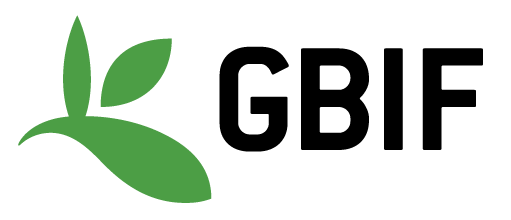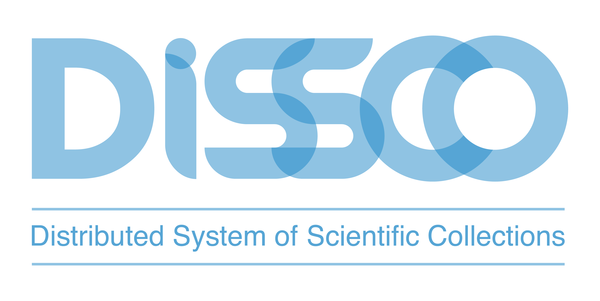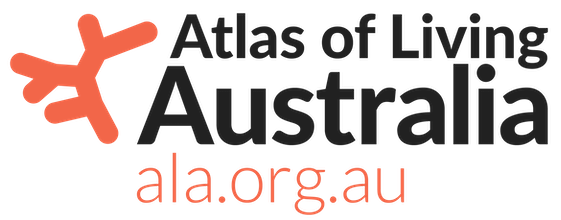TDWG 2020 - A Virtual Conference
TDWG Annual Conference - A virtual conference, 19-23 October
This page is also available in Spanish.
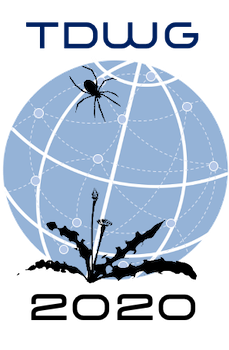
Standards that describe and support the exchange of biodiversity information are a critical scientific infrastructure. They enable data to be integrated in support of research, as well as decision-making and conservation planning. Ultimately, standards extend the usability of data across taxa, scientific disciplines, and administrative boundaries. Our annual Biodiversity Information Standards (TDWG) conferences serve two purposes:
- to provide a forum for developing, refining, and extending standards in response to new challenges and opportunities; and
- to provide a showcase for biodiversity informatics – much of which relies on the standards created by TDWG and other organizations.
In 2020, we cannot meet in person, so TDWG 2020 will be virtual — a collection of online working sessions, webinar-style symposia, presentations, panel discussions, and recorded presentations. This year we are separating working sessions from the virtual conference. Working sessions will be scheduled during the week of September 21-25, and the virtual conference will be scheduled the week of October 19-23. This separation will help us minimize parallel sessions, optimize the technologies, and avoid scheduling conflicts with other organizations. It will also give participants in our working sessions time to synthesize their results into presentations.
In the virtual conference week, we envision a mixture of three to four 90-minute or 2 h sessions each day, separated by at least a 30 minute break. Additional presenter instructions will be posted at a later date. Although we hope to avoid concurrent sessions, the time zones differences across our global community will guarantee that some of the audience for any session will be participating outside normal working hours. Committing to a schedule will help reduce frustration among people who have to get up early or stay up late to join the conference. We hope you will join us in this experiment to reimagine our in-person meetings in a virtual environment.
Two weeks of TDWG 2020
September 21-25 - Working sessions
- Introduction to TDWG, Workshops, and Training
- TDWG Interest & Task Group (IG/TG) sessions
- Hackathons
- “Birds of a feather” meeting — to organize a new Interest Group
Find links to recorded sessions on the working session schedule and working session descriptions.
October 19-23 - Virtual conference
- Symposia and panel discussions
- Contributed presentations (all abstracts)
- E-Posters, etc.
- Plenary sessions
- Business meeting, including IG/TG reports
Conference session descriptions
Conference session schedule. Use this Google Calendar link to add the conference schedule to your calendar in your time zone.
Working sessions for interest/task groups, workshops, and hackathons
Working sessions will be structured as meetings in which all participants can be enabled to speak. Requests to convene working sessions (including interest and task groups) during the week of September 21-25 should be submitted through a short survey (closed). All IG/TG proposals should be endorsed, if not submitted, by the IG/TG convener. The survey will close August 1, and a draft schedule of working sessions will be posted on August 17.
Symposia and panel discussions
The deadline for proposing a symposium or panel discussion during the week of October 19-23 has already passed. See the list of organized sessions.
Individual contributions (presentations, e-posters)
Abstracts are required for all presentations and e-posters, including those that are part of a symposium, and should be submitted through the Pensoft ARPHA system for BISS. The call for individual contributions has been posted. The submission deadline is 12 August. Detailed instructions for making submissions through ARPHA has also been posted.
Registration and how to support the conference
Registration is required to participate in the online events (so we can arrange sufficient capacity), but registration is free. The services required to run an online conference, however, are not free. So we encourage all participants to become TDWG members, either through affiliation with an institutional member or by paying individual membership dues for the 2020 calendar year ($75). Request an invoice to pay membership online, and help TDWG defray the cost of running the conference.
Abstract publishing fees
Abstracts will be required for all contributions (i.e., all presentations and e-posters), and will comprise the Proceedings of TDWG 2020, a collection in Biodiversity Information Science and Standards. Normally, we build publishing costs into the registration fees for the conference. But without a registration fee this year, we are going to follow the usual model for open-access publishing: authors pay to publish, and the paper is then free to read forever. The fee for each abstract will be 40€. The publishing fee may be waived, however, in cases of financial hardship. Authors please note that abstracts in TDWG Proceedings can be as large as a small paper (up to 6,000 characters, including references, authors and affiliations), and may include figures and links to related media. You can publish something significant for a nominal fee; less than 1/10th of the cost to publish a full article.
Time zones
One of the biggest challenges in planning a virtual conference for TDWG is that our community is global. Time zone differences make simultaneous participation for everyone impractical — every session will be scheduled in the middle of the night for someone. We will mitigate these conflicts by:
- Distributing the inconvenience as equitably as we can;
- Recording presentations and discussion for participants who can’t attend a session;
- Accommodating pre-recorded presentations for speakers who can’t be “live”; and
- Running some sessions twice if demand warrants.
The figure below shows the distribution of the TDWG community across time zones, as revealed by our recent survey.
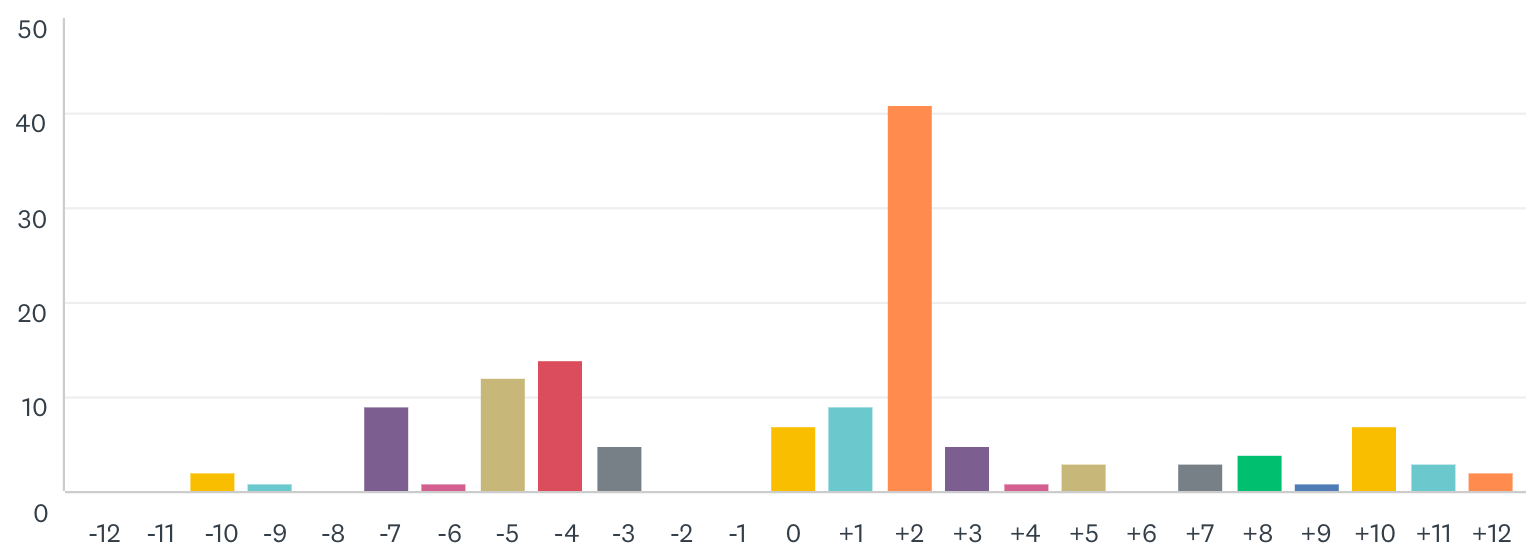
Based on this distribution, the two most effective session structures will be a trans-Atlantic one, from UTC-7 to UTC+3, and a Eurasian one, from UTC-0 to UTC +12. Sessions timed to reach wide geographic ranges, such as these, will require people in the earliest and latest time zones to participate outside “normal” working hours. We hope to make scheduling decisions that accommodate critical contributors and maximize the potential audience.
Session length and presentation length
Online events that have taken place already show that many people find it difficult to follow presentations effectively for much more than an hour without a break. We hope to structure sessions as blocks no longer than 60 minutes without a break. We intend to limit the total time allocated to each presenter to 15 minutes, meaning that the introduction and actual presentation should be no longer than 10 minutes, leaving a few minutes for questions and another minute or so to set up the next speaker.
We will hold technology testing sessions prior to each week of the conference, which will allow presenters to test their software, camera, and microphone.
Supporters
TDWG gratefully acknowledges the financial or in-kind support of TDWG 2020 by the following organizations.
Contacts
Please send questions to: conf-organizers@tdwg.org
